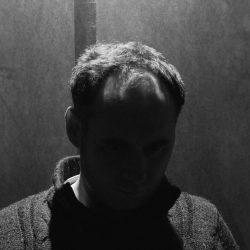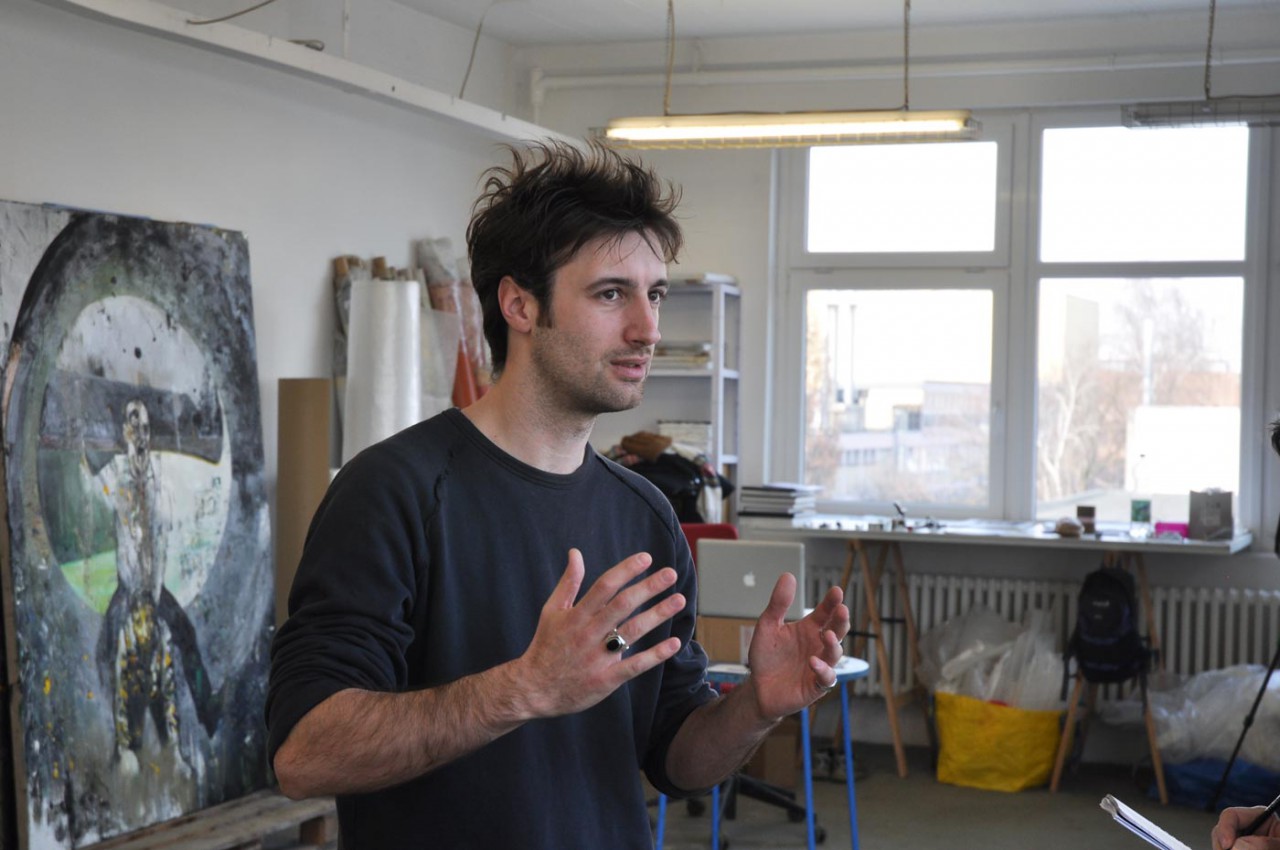
ALEXANDER SCHELLBACH
...Page is loading...

Berlin, Germany
The smell of freshly baked pastries welcomed us as we arrived to the building where Emmanuel Bornstein’s studio is located. Turns out there is also an Arabian pastry factory in the building contributing to the mix of artist studios and small industry in the building complex.
Awful German history jumps out at you when you first see Emmanuel Bornstein’s paintings. “It´s only one layer, you know”, he reassures “On the...
The smell of freshly baked pastries welcomed us as we arrived to the building where Emmanuel Bornstein’s studio is located. Turns out there is also an Arabian pastry factory in the building contributing to the mix of artist studios and small industry in the building complex.
Awful German history jumps out at you when you first see Emmanuel Bornstein’s paintings. “It´s only one layer, you know”, he reassures “On the other hand, the figure is looking to the future.” Ambiguity is very important to Emmanuel. “I deal with memory, consisting of layers while trying to find a language which is my own.”
He uses circles like pipe tunnels to create windows to different times and issues. Eight paintings named “K” might be references to Franz Kafka. Coincidently, he realized after painting them that the writer that he admires wrote also “Man muss ins Dunkel hineinschreiben wie in einen Tunnel” (One should write as when one is in the darkness of a tunnel, without knowing how the characters will develop). “It describes what it means to create something”, Emmanuel adds. He always starts working from his emotions, and when he realizes that others have had same thoughts, he sees it as a confirmation.
Emmanuel Bornstein works on two formats, small portraits and larger paintings. “To bring a small painting to the same potency as a large one is much harder”, he explains. A look at his fantastic portraits gives you an idea of this effort.
Emmanuel always starts with yellow. “ Yellow is my white”, he formulates his technical approach to a painting. “Yellow is a toxic colour, but also bright. It gives energy. Goethe said that yellow has an ambivalence between shame and light. It´s important to have ‘your’ colour. Yellow is certainly mine”. Moreover, artists he has looked at with obsession are Francis Bacon, Otto Dix and Francisco de Goya, with whom he would love to be exhibited together….
What is it about your studio space that inspires you?
That’s my territory. I’m like an animal who marks the limit of my territory. It has something to do with the concept from Gilles Deleuze. “Create a territory is already the beginning of art.”
What sounds, scents and sights do you encounter while in your studio?
It depends… I usually start with music and then it stops by itself but when this happens I’m already totally absorbed by the painting and don’t even notice it. I prefer silence.
What is your favourite material to work with? How has your use of it evolved throughout your practice?
Memory…
What themes do you pursue?
I deal with human being behavior.
What advice has had the biggest impact on your career?
“ Being an artist, it’s like being at the surface of a sphere, you have as many options as locations in this globe and they all are at equal distance to the center. You could spend time to choose one spot or an other but when you choose one place you have to dig to go as close as possible to the center without changing locations and try to go as far and deep as possible. It’s the only way to do something and it’s no way back.“ When I was 13 years old, the authors and theater director Wajdi Mouawad, told me this . Still have it in mind every day.
If you weren´t an artist, what would you be doing?
I couldn’t do anything else.
Crone Galerie, Berlin • Vienna | http://cronegalerie.com